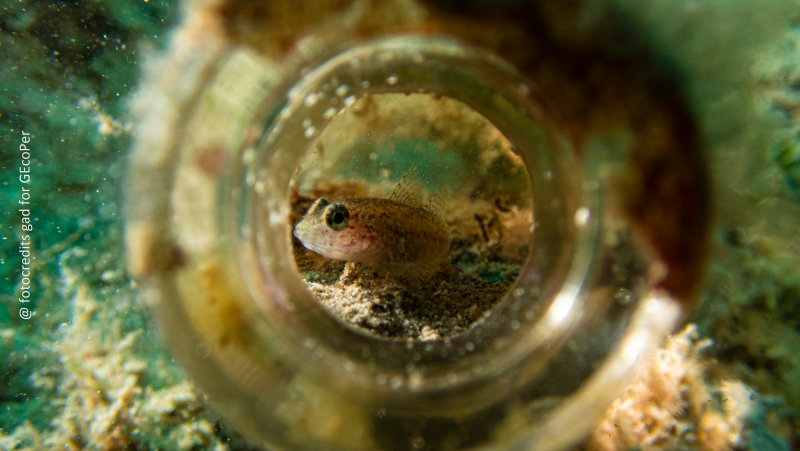Our Aims
Ecocritical perspectives in German-language literature

It is the firm opinion of many scientists of various backgrounds that the climate crisis requires an overall change of view, based on a holistic involvement of the most disparate disciplines; because a contribution to change is required from each discipline, according to its specificities. In this sense, the humanities can provide a decisive contribution to redefining the terms of the “natural contract” (M. Serres 1990), i.e., to rewriting of the conditions of domination, conflict and property between man and nature. In the 1990s, the challenge of establishing interdisciplinary dialogue between ecology and the literary sciences was first taken up by ecocriticism, a field of research that has rapidly developed since then and now includes various ramifications and fruitful epistemological approaches. However, the substance of this term is still be debatable. Within the definition of a single word, it comprises the advantage of encompassing a relationship between human beings and the environment, between nature and culture, between literary criticism and civic awareness. These environmental issues can also only be understood in relational terms.
With an interdisciplinary theoretical and methodological approach, our research focuses on the reconstruction of the ecocritical discourse in the field of German literature and linguistics, thereby having the aim of identifying the specificities of the relationship between literature, language and ecology in the course of history, ranging from the modern age to the contemporary era.
“Ecocritical” Perspectives in German-Language Literature (GEcoPer): Paths of Innovation and International Networking is a research project funded by the Italian Ministry of University and Research. As part of its primary objectives, the project intends to promote ecocritical research within the scope of German-language literary studies – including linguistic approaches, to act as a hub for German ecocritical research on an international level through networking activities (GEcoPer Research Hub), to extend the dialogue with contemporary German-language writers on environmental issues (“Spring Awakening” Days), and to bring younger generations of students and scholars closer to these research topics (GEcoPer Young Lab).
Viele Wissenschaftler unterschiedlicher Disziplinen teilen heute die feste Überzeugung, dass die Klimakrise einen umfassenden Perspektivenwechsel erfordert, der nur auf einer gemeinschaftlichen, die unterschiedlichsten Disziplinen integrierenden Basis erfolgen kann; denn jede Einzeldisziplin muss entsprechend ihrer jeweils spezifischen Fähigkeiten einen Beitrag dazu leisten. Den Geisteswissenschaften kann in diesem Sinne die entscheidende Aufgabe zufallen, die Bedingungen des „Naturvertrags“ (Serres 1990) neu zu definieren, d.h. die Herrschafts-, Konflikt- und Eigentumsverhältnisse zwischen Mensch und Natur neu zu formulieren. In den 1990er Jahren wurde die Herausforderung eines interdisziplinären Dialogs zwischen Ökologie und Literaturwissenschaften vor allem vom Ecocriticism angenommen, einem Forschungsfeld, das sich seither rasant entwickelt hat und heute verschiedene Verzweigungen und fruchtbare epistemologische Ansätze umfasst. So umstritten der Begriff noch sein mag, besitzt er doch den Vorteil, eine multiple Wechselbeziehung in einem einzigen Wort zu bündeln: die Beziehung zwischen Mensch und Umwelt, zwischen Natur und Kultur, zwischen Literaturkritik und bürgerlichem Bewusstsein. Denn Umweltthemen lassen sich nun einmal nur relational verstehen und verhandeln.
Im Mittelpunkt unseres Forschungsprojekts, das theoretisch und methodologisch von einem interdisziplinären Ansatz geleitet ist, steht die Rekonstruktion des ökokritischen Diskurses in der deutschen Literatur- und Sprachwissenschaft, mit dem Ziel, die Besonderheiten und Transformationen herauszuarbeiten, die das Verhältnis von Literatur und Ökologie im Laufe der Literaturgeschichte, von der Schwelle zur Neuzeit bis in die Gegenwart, kennzeichnen.
„Ecocritical“ Perspectives in German-Language Literature (GEcoPer): Paths of Innovation and International Networking ist ein vom italienischen Wissenschaftsministerium finanziertes Forschungsprojekt. Zu seinen vordringlichen Zielen gehören: die Förderung ökokritischer Forschungsansätze in der deutschen Literaturwissenschaft und Linguistik; die Funktion als Drehscheibe (Hub) für die deutsche und internationale Forschung im Bereich des Ecocriticism durch Networking (GEcoPer Research Hub); die Ausweitung des Dialogs mit deutschsprachigen Schriftsteller:innen der Gegenwart zu Umweltthemen („Spring Awakening“ Days); die Heranführung der jungen Generation von Student:innen und Wissenschaftler:innen an ökokritische Forschungsthemen (GEcoPer Young Lab).
È ferma opinione di molti scienziati di varie discipline che la crisi climatica richieda un cambiamento prospettico complessivo, basato su un coinvolgimento olistico delle discipline più disparate; poiché a ciascuna disciplina è richiesto un contributo al cambiamento, secondo le sue specificità. In questo senso, le scienze umane possono dare un contributo decisivo alla ridefinizione dei termini del “contratto naturale” (Serres 1990), cioè alla riscrittura delle condizioni di dominio, conflitto e proprietà tra essere umano e natura. Negli anni Novanta, la sfida del dialogo interdisciplinare tra ecologia e scienze letterarie è stata raccolta innanzitutto dall’ecocritica, un campo di ricerca che da allora si è rapidamente sviluppato e che oggi comprende diverse ramificazioni e fecondi approcci epistemologici. Per quanto il termine possa essere ancora discusso, esso ha il vantaggio di racchiudere in una sola parola una relazione, quella tra l’uomo e l’ambiente, tra la natura e la cultura, tra la critica letteraria e la coscienza civica. E le questioni ambientali possono essere comprese solo in termini relazionali.
Con un approccio teorico e metodologico interdisciplinare, la nostra ricerca si concentra sulla ricostruzione del discorso ecocritico nell’ambito della letteratura e della linguistica tedesca, con l’obiettivo di individuare le specificità del rapporto tra letteratura, lingua ed ecologia nel corso della storia, dalle soglie dell’età moderna alla contemporaneità.
“Ecocritical” Perspectives in German-Language Literature (GEcoPer): Paths of Innovation and International Networking è un progetto di ricerca finanziato dal Ministero dell’Università e della Ricerca italiano. Tra i suoi obiettivi principali, il progetto intende promuovere la ricerca ecocritica negli studi di letteratura e lingua tedesca; fungere da Hub per la ricerca ecocritica tedesca a livello internazionale attraverso attività di networking (GEcoPer Research Hub); ampliare il dialogo con le scrittrici e gli scrittori contemporanei di lingua tedesca sulle tematiche ambientali (“Spring Awakening” Days); far avvicinare giovani generazioni di studenti e studiosi a questi temi di ricerca (GEcoPer Young Lab).

